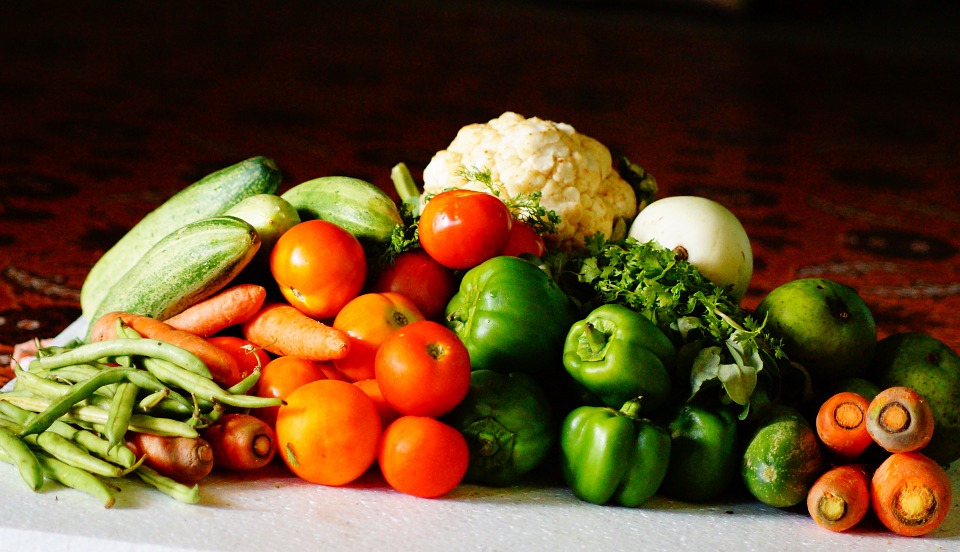Getting more mileage out of our meals
15 May 2012 -- Posted by :This article by Peter Luiten was first published in Wairarapa News in May 2012.

The fastest way we can help our own community become more self-sufficient and resilient is by eating locally-grown food. New Zealand's geographic isolation on the globe puts us at the very end of a long supply line, dependent for much of our food on circumstances far beyond our control. The world's awash with crises, any one of which could cut that line. As a relatively small market, we'd be the easiest customers to drop and the most vulnerable to price increases. It would be prudent to take steps now to ensure that we could keep eating if, for whatever reason, supermarket shelves were not being restocked. It’s a useful exercise to identify how much of what we eat in a day is produced within 1 km and how much beyond 1, 10, 100 and 1,000 km. Every kilometre we manage to take out of our meals is a step towards food security. Security is not the only reason to become less dependent on distant suppliers, however. The further we reach for our food, the greater the cost of its distribution, and the more both consumers and growers are squeezed. As a result, food becomes ever-more expensive and ever-less nutritious: we end up serving miles rather than meals. A community that aims to enjoy high-quality food must reduce the cost of distributing it. It adds up to this: if enough of us support local production of food today, we boost our chances of enjoying healthy food tomorrow. What community wouldn’t want to do so? The most secure source of nutritious food is, for many of us, our own home garden. The personal responsibility we take for its health and our own bears further fruits: improved flavours, savings in cost and waste, accumulating knowledge and a sense of achievement. Gardening's a challenge. Most of us have other demands on our time and don’t have access to enough land to grow everything our families need year-round. Some have cultivated great ambitions and become discouraged by failure. Some don’t have the ability or opportunity to garden at all. Such considerations cry out for a cooperative neighbourhood approach to supplement home food production. Farmers Markets and online distribution networks are steps in the right direction in that they encourage local production. But being able to source fruit and vegetables grown within a street or two would minimise distribution costs and significantly strengthen community ties. A network of interdependent food producers constitutes a Food Pool, and anyone can start or join one. Members can include people unable to tend their gardens and others willing to work the unused land. Ultimately, every one of us can have a role in the production of food for ourselves and our community, even if all the space we have is a windowsill on which to grow a daily supply of sprouts. Learning to work as co-suppliers would make not only the supply itself more secure but our whole neighbourhood a safer and more enjoyable place to live. Food Pools slash food bills, boost production and reduce individual workloads by enabling growers to select crop types, rotate crops and simplify harvesting. Like the other trading pools we promote, Food Pools can even save the significant cost of cash by using pool accounts or vouchers for mutual transactions. For most consumers, home-grown fruit and vegetables need to be supplemented with produce – cereals in particular – from nearby market gardens, orchards and farms. One Food Pool model is known as Community-Supported Agriculture. CSA consumers form a direct-purchase partnership with the grower, subscribing on a seasonal basis to enable the grower to plan a planting programme. Because the grower has an assured market, the consumer is assured of a year-round supply of high-quality food at prices that give both parties full value for cost. Living Economies can provide assistance to any community wishing to set up a food supply based on the CSA model. Food information is as important as food itself. Each pool’s collective skills and experience constitutes a resource for newer gardeners. Ooooby (www.ooooby.org), for example, is an on-line Food Pool promoting food “out of our own back yards” and encouraging and enabling connections between growers. Let’s refuse a second helping of the widespread hunger we tasted in the 1930s. If you'd like to develop a neighbourhood Food Pool or set up a local CSA or Ooooby Hub, contact us. |
